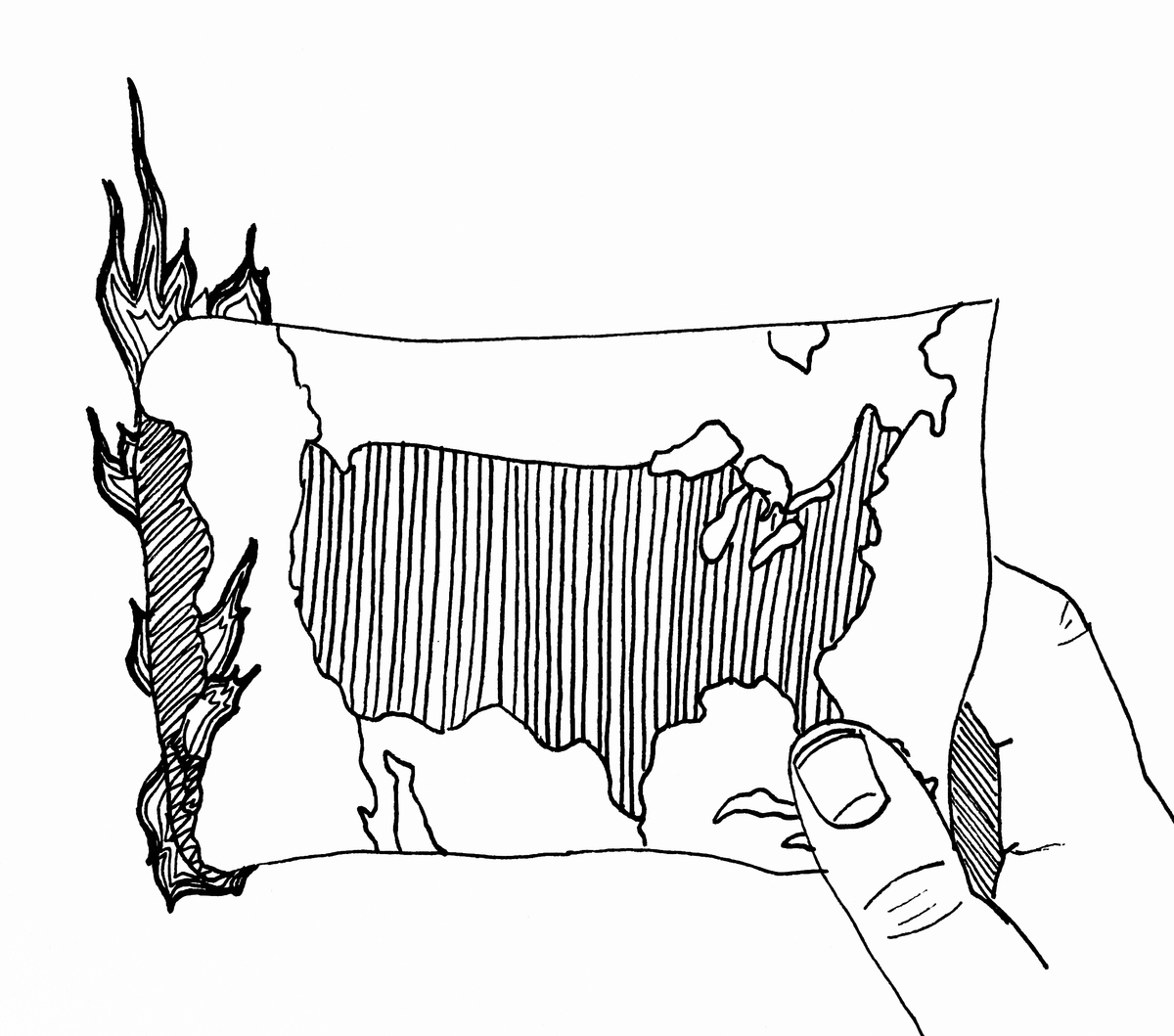
Sweeping through Washington, Oregon and California, wildfires have destroyed the West. With towns, homes and forests destroyed, many feel devastation for the places they love and know. In Oregon, one million acres burned and 500,000 people evacuated from their homes. However, these are just a few of the symptoms of manmade climate change.
A year ago, I attended the Global Climate Strike as a journalist for my local paper. Fellow students and I paraded downtown Walla Walla, Washington, demanding action against climate change. During this time, I experienced constant climate anxiety. I found myself questioning if the forests I hiked through would remain or if yet another animal species would be declared as endangered. Although I was instilled with hope during the protests, my anxiety persisted.
On February 6, my biggest fear came to fruition. A flood ripped through the Walla Walla Valley destroying houses and displacing and injuring people. This was a calamitous reality brought on by climate change. Seeing my home suffering from the devastating effects of climate change was traumatizing, but this is only a sliver of an even larger epidemic.
On Sept. 11, Portland’s Air Quality Index stayed in the 400s while more than 40 wildfires decimated the forests. The actions taken by Lewis & Clark to protect the safety and wellbeing of students included canceling in-person classes and activities and recommending students to stay indoors. The apocalyptic Oregon smoky skies were tainted with a dark orange hue. Lack of forest management has contributed to Oregon’s 2020 Fires. Although, some arsonists are to blame, the Qanon-based conspiracy theory that anti-fascist groups started the fire is absolutely false. The rumors serve only to incite fear. The consensus points to climate change as the culprit.
Undeniably, the effects of a warming planet are not only present on the West Coast of the U.S.It is a global issue. I would argue that the effects of climate change in the West, specifically the Pacific Northwest, are much more prevalent due to our diverse landscape. With consistent droughts, recurrent floods, longer wildfire seasons and rising sea levels, the West Coast is a living museum of the effects of climate change.
So what can be done? Both Oregon Gov. Kate Brown and California Gov. Gavin Newsom are fighting climate change by ceasing the sales of all new gasoline-powered cars and trucks by 2035. Brown affirms that with zero-emission vehicles, economic development, public health and the environment will benefit. This is a step in the right direction. Although individuals should change their lifestyles to be more environmentally-friendly, corporations are the real ones who need to be held accountable. According to the Carbon Disclosure Project, 100 fossil fuel companies are responsible for 71% of carbon emissions.
The Green New Deal (GND) resolution proposed by Rep. Alexandria Ocasio-Cortez (D-NY) and Sen. Ed Markey (D-MA) holds these corporations accountable. The GND includes promoting clean production by swapping pollution and greenhouse gases for 100 percent renewable, zero-emission energy sources and would withdraw our society from fossil fuel use. The GND has been criticized as too progressive and costly, but compared to living on a burning planet, it begs the question: do we value capital over our lives?
After President Donald Trump said, “It will start getting cooler, just you watch,” California’s Natural Resources Agency Secretary Wade Crowfoot confronted Trump with the scientific evidence of global climate change and its irreversible consequences. When Trump talked to scientists and officials, it showed an obvious juxtaposition between priorities of a Manhattan businessman compared to a West Coast-native environmentalist. Trump has always denied climate change and has rolled back plenty of environmental restrictions. In contrast, Crowfoot observes the impact of climate change everyday by living on the West Coast. This encounter is a metaphor for what the 2020 election is about — an unprecedented divide in our nation where it is the risk of people’s wellbeing versus profits of mega-corporations.
As the presidential election nears, I hope the fires have brought attention to the extreme effects of climate change and deforestation on our planet. When you vote, think of the grade school kids demanding the grown-ups to act. Think of the ash-filled skies which choked the Pacific Northwest for days. Think of the floods that have disenfranchised farmers and laid waste to acres of rich soil. Four more years of Trump ignoring climate change would be environmentally devastating. This isn’t a red or blue issue.We can no longer afford to do nothing.
Subscribe to the Mossy Log Newsletter
Stay up to date with the goings-on at Lewis & Clark! Get the top stories or your favorite section delivered to your inbox whenever we release a new issue.

Leave a Reply